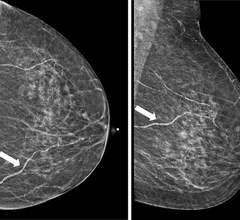Acute Coronary Syndromes
Acute coronary syndrome (ACS) is most commonly caused by a heart attack (myocardial infarction) where blood flow to the heart is suddenly blocked. This is usually caused by a blood clot from a ruptured coronary artery atherosclerotic plaque. Other causes include spontaneous coronary artery dissection (SCAD), which most commonly occurs in women. ACS is usually treated in a cath lab with angioplasty and the placement of a stent to prop the vessel open.
Displaying 1 - 8 of 8

![Using computed tomography (CT) to perform coronary artery calcium (CAC) scoring can help identify symptomatic chest pain patients who do not require further testing, according to a new analysis published in Radiology.[1]](/sites/default/files/styles/top_stories/public/2024-03/screen_shot_2024-03-06_at_2.42.41_pm.png.webp?itok=jn2JGD8x)




![Using computed tomography (CT) to perform coronary artery calcium (CAC) scoring can help identify symptomatic chest pain patients who do not require further testing, according to a new analysis published in Radiology.[1]](/sites/default/files/styles/240x220/public/2024-03/screen_shot_2024-03-06_at_2.42.41_pm.png.webp?itok=DhVtjZ50)





